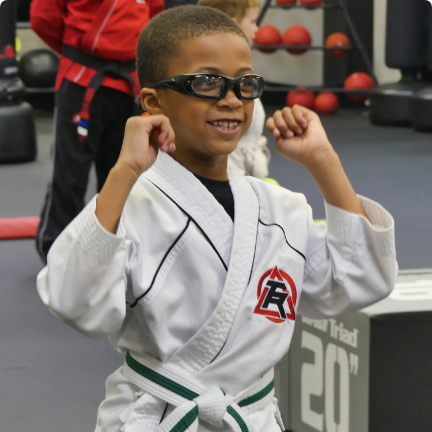Viva Resa: Your Gateway to Insightful Living
Discover news, trends, and tips for a vibrant lifestyle.
Kick, Punch, Repeat: The Unexpected Benefits of Martial Arts
Discover how martial arts can transform your life! Uncover unexpected benefits beyond self-defense in our latest blog post.
How Martial Arts Can Boost Your Mental Health: Unlocking Focus and Discipline
Engaging in martial arts is not just about physical strength; it also plays a crucial role in enhancing mental health. One of the key benefits is the improvement of focus. The structured environment of martial arts training promotes mindfulness, helping practitioners concentrate better both on and off the mat. As individuals learn various techniques and forms, they develop an ability to quiet their minds, which can lead to reduced anxiety and stress levels. This empowerment through mindful practices encourages personal growth and a more balanced mental state.
Moreover, martial arts instills a sense of discipline that transcends physical training. According to research, individuals who practice martial arts experience significant improvements in self-control and resilience. These qualities are essential in managing everyday challenges and maintaining mental well-being. For instance, the concept of setting and achieving goals within martial arts—such as earning belts or mastering new skills—not only fosters a sense of accomplishment but also boosts self-esteem. As highlighted by a study published in PubMed Central, this structured approach to personal development can greatly enhance one’s coping mechanisms and overall mental health.

The Hidden Physical Benefits of Practicing Martial Arts Regularly
Practicing martial arts regularly not only enhances your self-defense skills but also offers a myriad of physical benefits. Engaging in structured martial arts training can significantly improve your cardiovascular health by increasing your heart rate and improving blood circulation. The rigorous training routines, which often include high-intensity interval exercises, push your cardiovascular system, promoting better heart function and lower blood pressure. Furthermore, martial arts can elevate your metabolic rate, assisting in weight management while also boosting overall physical endurance.
In addition to cardiovascular benefits, martial arts are renowned for enhancing muscle strength and flexibility. Regular practice involves various movements that engage multiple muscle groups, thereby building strength and promoting lean muscle development. According to ACE Fitness, the dynamic stretching and kicks involved in martial arts help improve flexibility, reducing the risk of injuries in daily life. This combination of strength and flexibility leads to better body coordination and posture, fostering a healthier overall physique.
Can Martial Arts Improve Your Self-Defense Skills and Personal Safety?
Martial arts offer a comprehensive approach to self-defense that goes beyond simple physical techniques. By engaging in disciplines such as karate, judo, or Brazilian jiu-jitsu, practitioners not only learn effective methods for defending themselves but also develop crucial mental attributes such as confidence, discipline, and situational awareness. This combination of physical training and mental fortitude makes martial arts an invaluable tool for enhancing one’s self-defense skills and overall personal safety. Studies have shown that individuals who practice martial arts tend to feel more secure in their ability to protect themselves, which can positively impact their daily lives [source].
Furthermore, the techniques learned in martial arts extend beyond physical confrontations; they also teach individuals how to avoid dangerous situations altogether. Many martial arts emphasize the importance of de-escalation tactics, helping students to recognize potential threats and respond appropriately. This proactive approach to safety is essential in today's increasingly unpredictable environment. In addition, martial arts training often incorporates elements of fitness and self-discipline, leading to a healthier lifestyle that inherently contributes to a person's personal safety. If you're considering a martial arts class, it's worth exploring various styles to find one that aligns with your goals and promotes your well-being [source].